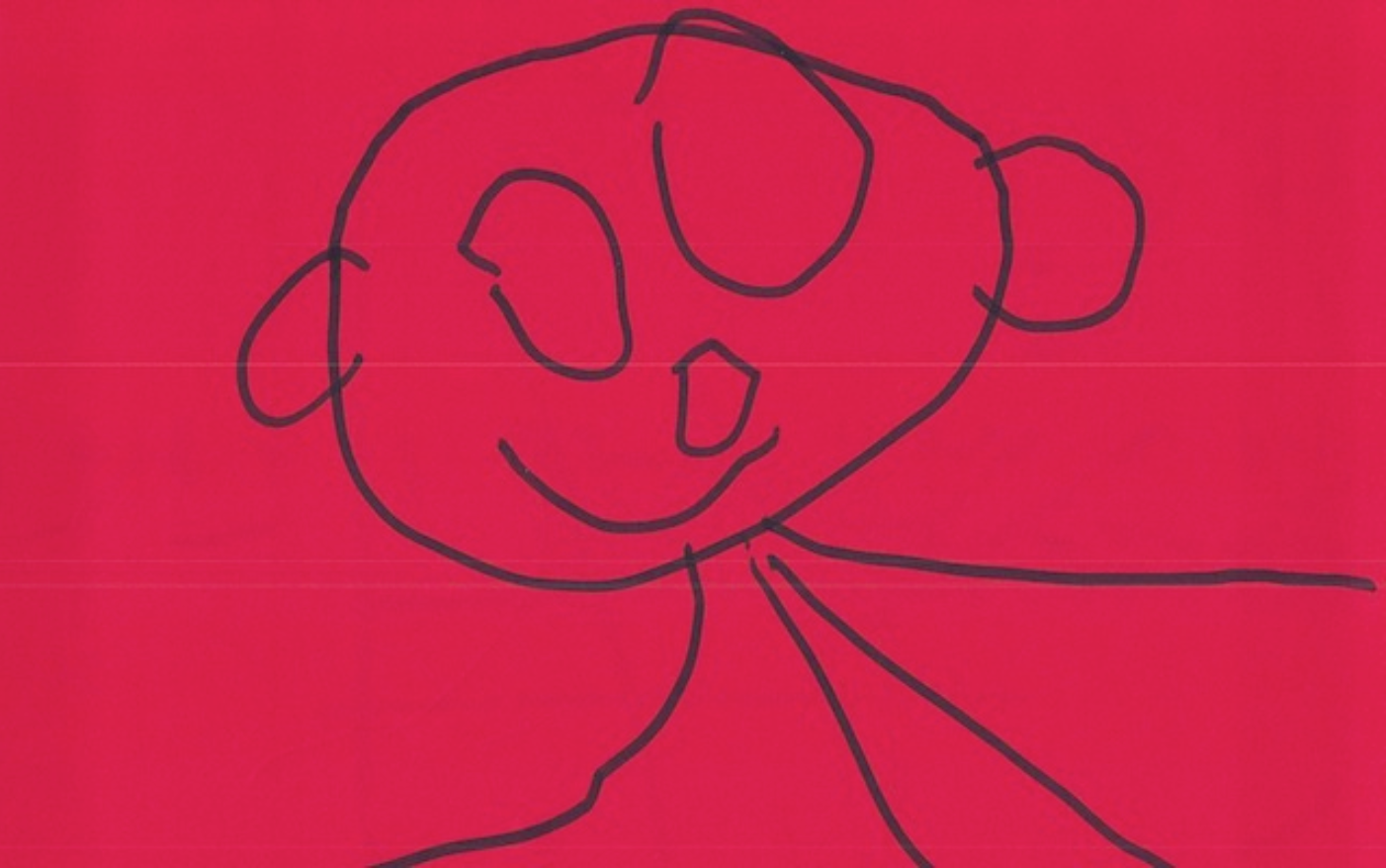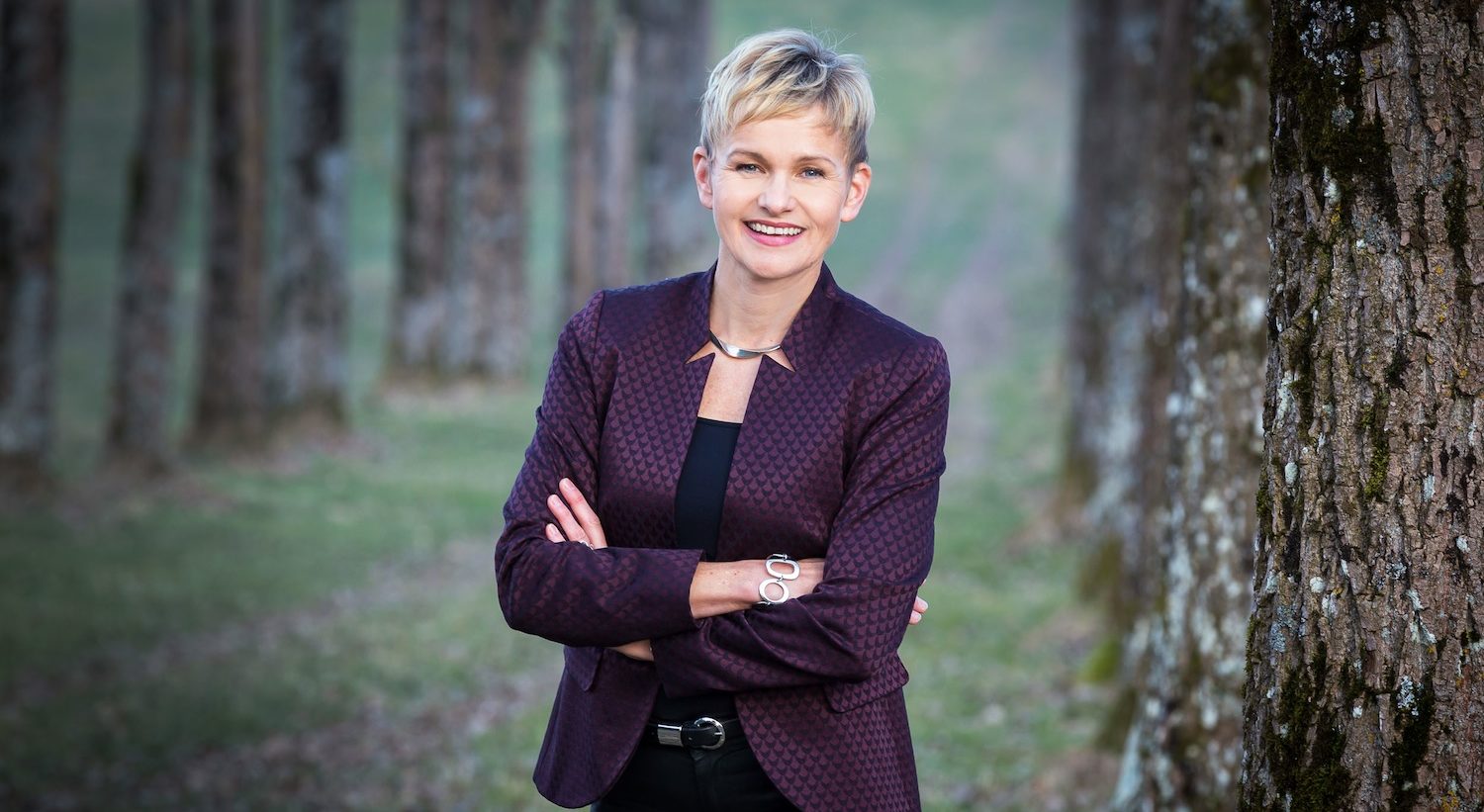Guest post by Maria Wilhelmsson
Founder VoxImpact – Personal presence coaching & training
Sign up for Maria’s workshop “Using your voice for greater influence in meetings, presentations, and everyday interactions” on January 27th.

This is a picture of me, seen by the eyes and drawn by the hands of my then four-year-old son. A lovely piece of art that I proudly hung on my office wall, but am less likely to put on my CV. There I’d prefer to have a photo that more fully represents my face (or even improves it). Like most other people, I do care about how others see me.
Does your voice represent who you really are?
Let’s make an analogy with the voice – the audio version of your personality. Is your voice a simple, black-and-white caricature of your persona, or is it a full-fledged portrait, with colours, shades, and nuances? Do you always sound the same, regardless of what you are talking about and what mood you are in? Or can other people hear when you are enthusiastic, upset or amused? I often come across business people – men and women – whose voices have gotten “stuck” in a professional, reserved, and unemotional soundtrack. While competent and high-performing, they find it hard to motivate and inspire others when they speak. To connect with the emotion of those you want to inspire, you need to let your own enthusiasm and conviction colour your voice. If you don’t paint an appealing picture with your voice and your words, how can you expect others to see it?
Life’s challenges make us adopt different vocal strategies
The basic sound of your voice is like your fingerprint – unique to you. But unlike your fingerprint, it also changes and develops as you go through life.
When we are born, our first cry comes from our whole body and with no delay between the impulse to cry and the actual uttering of sound. The breathing is free and the voice unrestricted. But very soon, we are told to “be quiet”, “wait for your turn” and “be good”. Through school we learn to conform to the norms and rules of our peers. In our careers we adopt the behaviours that are suitable for our professional roles, including the tone of voice, accent, and way of speaking. This is a natural process – as human beings we need to belong and get accepted by the group.
Put differently, we adopt the voice strategies that work for us. A pretty 18-year-old young woman may discover that a Marilyn Monroe-like voice gets her what she wants. A young man who just graduated from university may adopt a deep, monotonous tone to sound adult and knowledgeable in his first job. And it works – at least for a while. But when happens when our young woman is 42 and promoted to an executive position? Or when our young man has to enthuse and motivate his team to rise to a challenge?
Updating your strategy – finding your authentic voice
How can you get your voice “unstuck”? First, you need motivation, courage, and discipline. Changing old habits takes time and effort – and you may not feel immediately comfortable with the new sound of your voice, even if it is your natural voice.
Second, you need to enhance your awareness of your voice and how you use it. Listen to yourself in recordings. Pay attention to where in your body you feel your voice and your breath when you speak. Notice where you feel tension in your body, throat, and face. Observe how these tensions shift depending on whom you talk to and about what subject. Check with others if your own perception of the loudness and energy in your voice corresponds to what they hear.
Third, you need to practice regularly – ideally at least 15 min. per day during at least a month. The focus of your exercises will depend on your individual challenges, but will always involve the following three aspects:
1) Relaxing and aligning your body so that the air and sound can move freely.
2) Breathing down to your centre so your whole body becomes part of the sound.
3) Working on resonance and articulation to bring out a rich and clear voice.
Good voice work should always aim to use the voice that is there and stretch it and open up its possibilities, so that it does not limit your personality. Rather than learning new skills, voice work is about unlearning ineffective vocal habits. With time and patience, you will notice your voice change. Many people also experience emotional release when physical blockages get released through the voice exercises. No surprise: the voice is so closely linked with our identity that any vocal journey will also be a personal journey. Are you ready to get on board?





